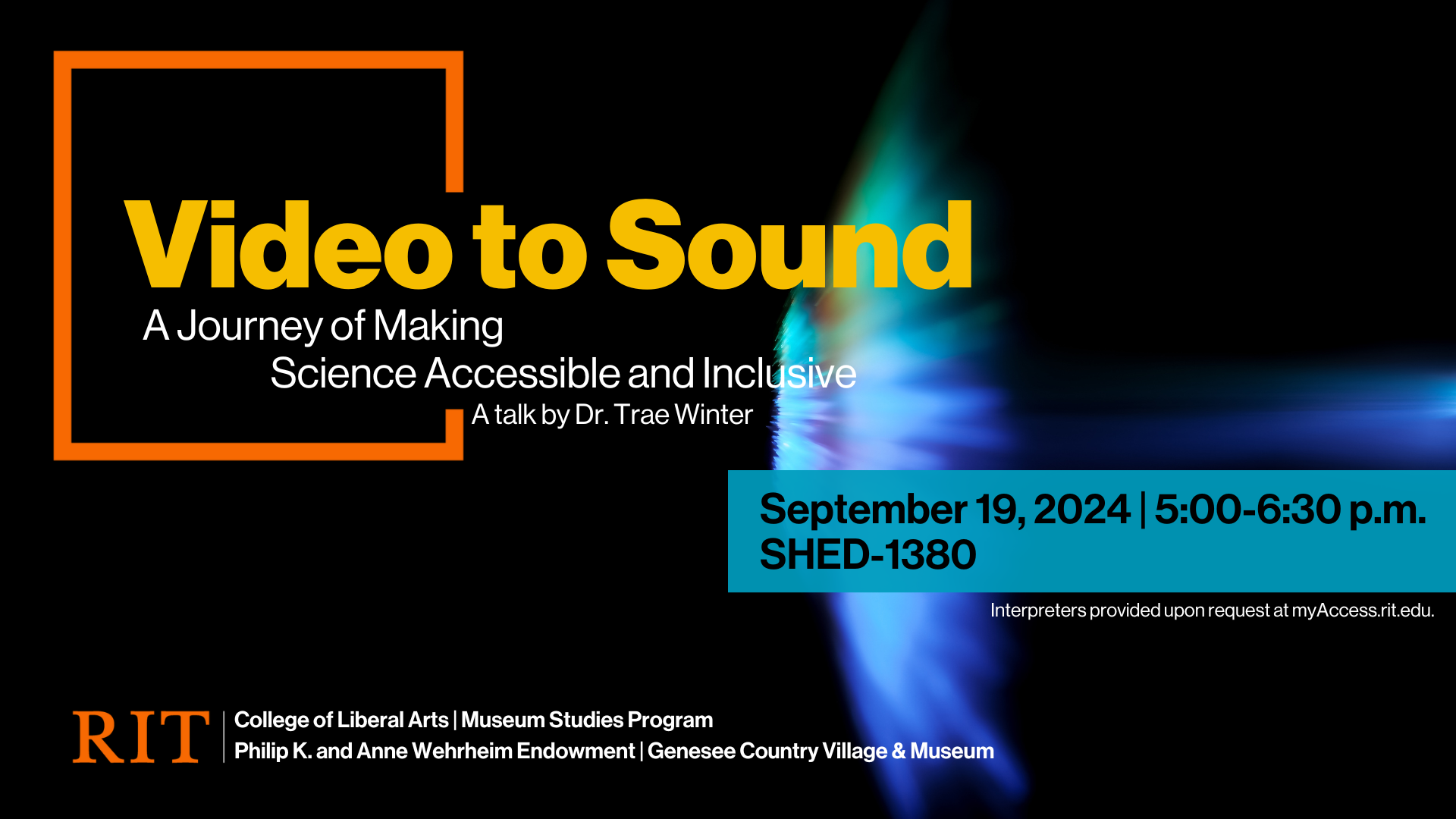Video to Sound: A Journey of Making Science Accessible and Inclusive

Dr. Henry “Trae” Winter is a solar astrophysicist who has worked on eight NASA missions observing the Sun. While Trae’s primary research focus was understanding how energy is released in the Sun’s atmosphere, the corona, and in other stars he also thought it was important to engage the public in scientific discovery. This engagement focus led him to work with diverse groups, such the Montana Space Grant Consortium, the Salish-Kootenai Flathead Lake Reservation, and the Boston Lyrical Opera to bring science to people where they were.
Trae also worked with institutions that focused on informal learning by bringing spectacular NASA images and video to museums. Trae designed a series of video wall exhibits for the Cooper Hewitt, Smithsonian Design Museum, the Smithsonian National Air and Space Museum, North Carolina State University’s Hunt Library, the Harvard Art Museums’ Lightbox Gallery, and the Museum of Boulder.
However, Trae quickly realized that people who are blind and have low vision (BLV) had no access to the exhibits he was helping create, and he resolved to change that. Along with his business partner and education specialist, MaryKay Severino, Trae created the ARISA Lab (ARISALab.org) to work specifically on making inclusive, accessible, and engaging science experiences for the general public. ARISA Lab’s current project, Eclipse Soundscapes (eclipsesoundscapes.org), is a NASA Citizen Science project funded by NASA Science Activation that engages members of the BLV community to study how eclipses affect life on Earth alongside their sighted peers. In this talk Trae will be sharing his journey from research scientist to a designer of accessible science and sharing some of the hard lessons he learned along the way.
This talk is sponsored by the Philip K. and Anne Wehrheim Endowment in support of the RIT-Genesee Country Village & Museum Partnership with Rochester Institute of Technology, RIT’s Museum Studies Program at Rochester Institute of Technology. Eclipse Soundscapes which is an enterprise of ARISA Lab, LLC and is supported by NASA award No. 80NSSC21M0008.
For interpretation, please request via https://myaccess.rit.edu/myAccess5/.
Event Snapshot
When and Where
Who
Open to the Public
Interpreter Requested?
No









